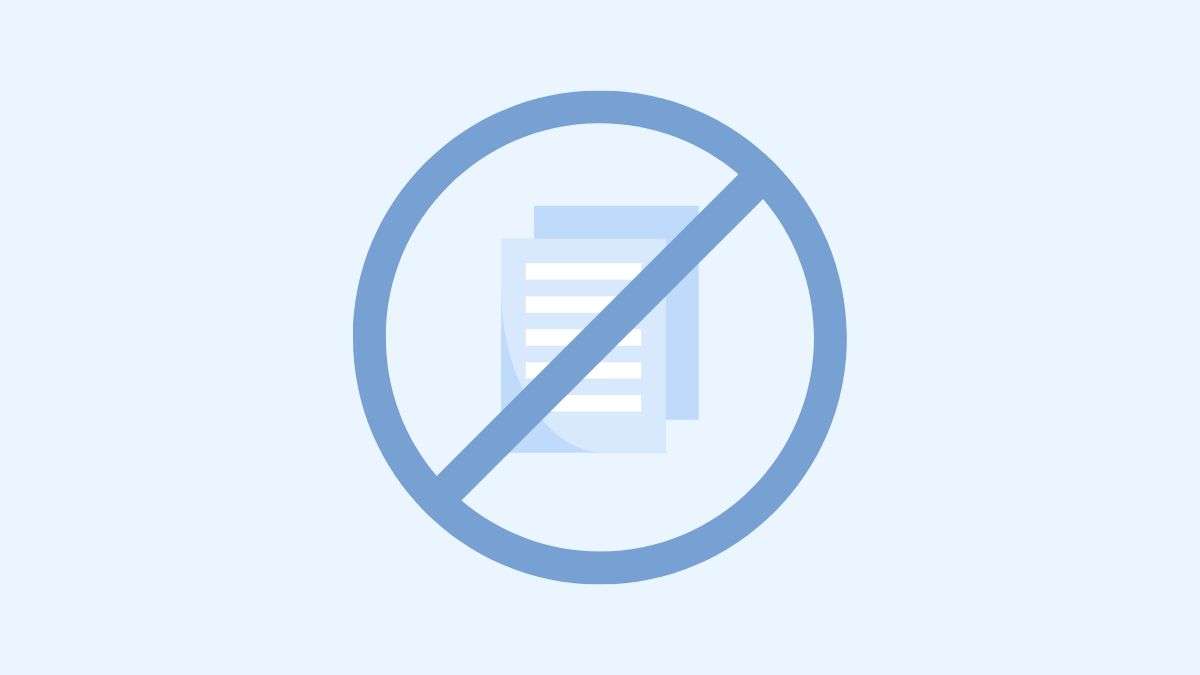Table of Contents
- Introduction
- What is Plagiarism?
- Plagiarism in Publishing: Case Studies
- Consequences of Plagiarism
- Combating Plagiarism in the Publishing Industry
- Conclusion
Introduction
Plagiarism in publishing refers to the unethical act of authors or publishers presenting someone else’s work as their original creation without proper attribution. This could involve directly copying passages from other sources verbatim, paraphrasing content from other sources without citation, or even appropriating others’ ideas without credit. Plagiarism fundamentally violates principles of integrity and undermines trust in the publishing industry.
Despite policies prohibiting plagiarism, its prevalence in publishing seems to have risen in recent years. Some high-profile cases have demonstrated that plagiarism in publishing still occurs across all genres and formats. Reasons for this uptick may include pressures to produce content quickly, easy access to existing work online, and, for some, perceived unlikelihood of getting caught.
This concerning trend warrants a deeper analysis. Through examining case studies, consequences, and potential solutions, this article aims to uncover the truth about the scope of plagiarism in publishing. It calls attention to the need for more vigilance from all stakeholders to uphold originality and integrity in the industry.
Recent cases indicate plagiarism in publishing is a growing issue. A study found that a large percentage of psychologists surveyed admitted to engaging in at least one questionable research practice, and a report also suggested that 50% of researchers in the Netherlands engaged frequently in at least one questionable research practice.
High-profile instances continue to surface across genres. Such deception raises legal concerns and can irrevocably damage reputations and reader trust.
This write-up will analyze the issue of plagiarism in publishing through case studies, explore consequences for individuals and the industry, and provide best practices for detection and prevention. The goal is to illuminate this critical issue and advocate for an ethical publishing culture centered on originality and integrity.
What is Plagiarism?
Plagiarism is the act of taking someone else’s work or ideas and passing them off as one’s own without proper attribution. In the publishing industry, plagiarism can take many forms, including directly copying passages from another source without quotation marks or attribution, paraphrasing content without citing it, and even appropriating concepts, ideas, or structures without credit.
Forms of Plagiarism in Publishing
There are several common forms of plagiarism that authors or publishers may commit:
- Word-for-word plagiarism – Directly copying content verbatim from another source without attribution
- Paraphrasing plagiarism – Restating another author’s ideas or writing without citation
- Self-plagiarism – Reusing significant portions of one’s own previously published work without citing the original
- Mosaic plagiarism – Borrowing phrases, ideas, or concepts from multiple sources and weaving them together without attribution
Plagiarism and Publishing Standards
In the publishing industry, plagiarism represents a serious breach of professional ethics and best practices. Authors, editors, and publishers are expected to uphold high standards of originality and attribution. Reproducing existing work without permission or adequately citing sources violates these standards.
Additionally, plagiarized content can constitute copyright infringement, opening up the possibility of legal action. The consequences for authors and publishers who plagiarize can be severe, including reputational damage, loss of credibility, blocked publishing opportunities, and even legal penalties.
Ethical Implications
Ethically, plagiarism in publishing essentially amounts to theft – taking credit for words or ideas that are not one’s own. It can damage readers’ trust, undermine the perceived authenticity of the work, and negatively impact sales and marketing efforts.
For these reasons, all industry stakeholders are responsible for calling out plagiarism occurrences and reinforcing the importance of originality and truthful representation in publishing.
By clearly defining plagiarism, understanding relevant publishing standards, and highlighting the ethical implications involved, authors, editors, and publishers alike can work to combat plagiarism actively and promote an environment of integrity across the industry.
Plagiarism in Publishing: Case Studies
One of the most high-profile cases of plagiarism in publishing in recent years involved author Kaavya Viswanathan. In 2006, Viswanathan’s debut young adult novel, How Opal Mehta Got Kissed, Got Wild, and Got a Life, was found to contain numerous passages lifted word-for-word from other authors without attribution.
The plagiarism allegations sparked a major controversy, with Viswanathan’s publisher pulling the book from circulation. The author faced intense criticism and damage to her reputation. The publisher, Little, Brown and Company, also suffered financially from the loss of expected sales on a heavily promoted title.
Another high-profile case occurred in 2013 when a Wall Street Journal reporter, Sari Horwitz, was found to have plagiarized sections of an article on the Boston Marathon bombing suspects from the New York Times. An internal investigation led the Journal to dismiss Horwitz. The newspaper also had to print an apology to readers, resulting in embarrassment and questions about the credibility of its reporting.
Consequences for Stakeholders
As illustrated in the above examples, acts of plagiarism in publishing often lead to severe consequences for the key parties involved:
- Authors face accusations of ethical misconduct, professional damage, and losing trust from readers and publishers.
- Publishers have to contend with financial losses, harm to their brand image, and strained relationships with authors/agents.
- Editors may be disciplined or even lose their jobs over failure to detect plagiarism pre-publication.
Impact on Reputations
High-profile plagiarism controversies can also negatively impact the overall reputation of individuals and publishing houses. Authors found plagiarized see their credibility and integrity questioned beyond the specific incident. Publishers linked to plagiarism face scrutiny around their review processes and standards.
Sometimes, the effects can be long-lasting, making it difficult for authors, editors, or publishers to regain trust. However, those who respond promptly and transparently to plagiarism incidents suffer less damage than those perceived as evasive.
Consequences of Plagiarism
Plagiarism in publishing can have severe legal and professional repercussions for the authors and publishers involved. If an author is found to have plagiarized substantial portions of their work, they may face lawsuits from the original content creators demanding financial restitution.
In some cases, plagiarists have had to pay out millions in damages. Beyond the financial impacts, an author’s reputation and credibility can be irreparably harmed if exposed as a plagiarist. Publishers and literary agents will unlikely take on future projects from known plagiarists. Readers who supported the author’s earlier work may lose trust and refuse to purchase future books.
Damage to Credibility and Career Prospects
Once exposed, plagiarists often struggle to salvage their writing careers. Even if some readers stand by them, many industry professionals like publishers, agents, and editors will hesitate to work with someone known for stealing others’ work.
Bestseller status or previous acclaim does not shield authors from the consequences. For example, romance novelist Cassie Edwards saw her lucrative career unravel after she was found to have extensively copied passages in several of her novels. Regardless of past commercial success, plagiarism permanently stains an author’s reputation.
Impact on Sales and Readers’ Trust
Besides harming the author, plagiarized books and content negatively affect sales and undermine readers’ trust in the publisher. Media coverage of high-profile plagiarism controversies can reduce interest and sales of books containing plagiarized content and other titles from the same publisher.
Readers begin questioning if other books from that publisher might also include plagiarism that went undetected. This erosion of readers’ confidence and goodwill takes years to rebuild. Furthermore, extensive plagiarism often leads to publishers halting printing and distribution, directly impacting sales. Ultimately, publishers suffer financially while authors face a loss of credibility.
Combating Plagiarism in the Publishing Industry
Plagiarism can severely damage the reputation and credibility of authors, editors, publishers, and the industry. However, there are proactive strategies that key players can employ to detect, prevent, and discourage plagiarism.
Best Practices for Authors
Authors should make originality and proper citation paramount in their work. Specific tips include:
- Maintain careful records of research sources consulted
- Properly paraphrase and quote content from other sources
- Reference all source material with in-text citations and bibliographies
- Run manuscripts through plagiarism-checking software before submission
Authors can produce original content by dedicating time to careful research, citation, and editing.
The Role of Editors and Publishers
Editors and publishers serve as gatekeepers that protect the integrity of published works. They should:
- Screen all submissions through plagiarism detection software
- Verify the originality of accepted manuscripts
- Develop and enforce strong plagiarism policies
- Provide submission guidelines that set clear originality expectations
By establishing rigorous screening procedures, publishers safeguard their reputations and readers’ trust.
Promoting Originality in Publishing
The publishing community as a whole must nurture a culture that values originality through initiatives like:
- Industry symposiums on ethics and plagiarism
- Awards recognizing genuinely original works
- Mentorships to guide new authors on best practices
- Continued development of plagiarism screening tools
Fostering an environment where originality is expected and rewarded will motivate authors to meet the highest ethical standards.
Conclusion
This comprehensive analysis has shed light on the troubling issue of plagiarism in publishing. As we have seen, plagiarism comes in many forms – from direct copying to paraphrasing without proper attribution. Its implications are profound, destroying careers and reputations while eroding reader trust.

The case studies presented highlight the real-world consequences those involved in plagiarism scandals face. Legal action, loss of credibility, and damaged book sales resulted from such ethical breaches. Meanwhile, the publishing houses also suffer losses to their brand image and profits.
Moving forward, vigilance and ethical conduct are vital. Authors must properly cite sources, while publishers need plagiarism-checking tools and protocols. Readers, too, must support original voices over copycats. With conscientious effort from all stakeholders, a culture of integrity can prevail.
Key Insights
- Plagiarism in publishing, though often seen as a victimless crime, has severe repercussions.
- Authors, publishers, retailers, and readers stand to lose when plagiarism occurs.
- Proactive measures like plagiarism-checking software and ethical codes of conduct are necessary.
Ongoing Vigilance
The publishing industry must remain alert to new plagiarism schemes. As technology evolves, so too may the techniques of copycats. Publishers should continuously update their detection systems while reminding authors of their ethical duties. Editors also need proper training to recognize stolen work. There is no room for complacency in the fight against plagiarism.
Supporting Original Voices
Readers must play their part by supporting original books over knockoffs. Seeking out fresh ideas and new authorial voices will incentivize creativity over copying. Reviews and word-of-mouth promotion of genuine works also help. Additionally, reporting suspected plagiarism helps protect the publishing ecosystem. In these small but meaningful ways, we can all defend originality.
By taking a stand against plagiarism in publishing, upholding ethics, and celebrating creativity, a brighter future awaits the industry. The choice is ours.

2 thoughts on “Plagiarism in Publishing”